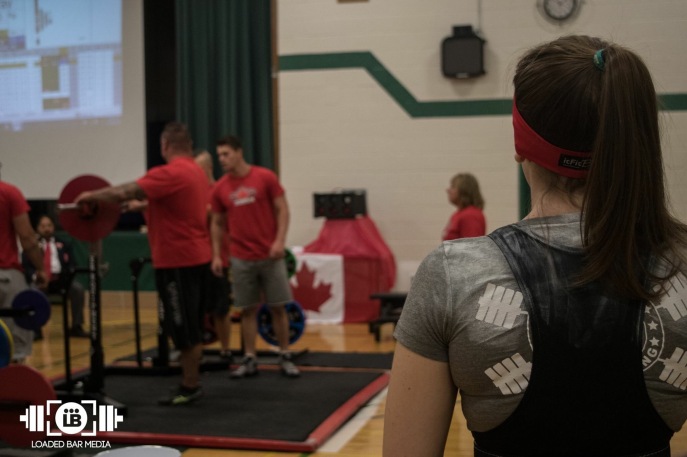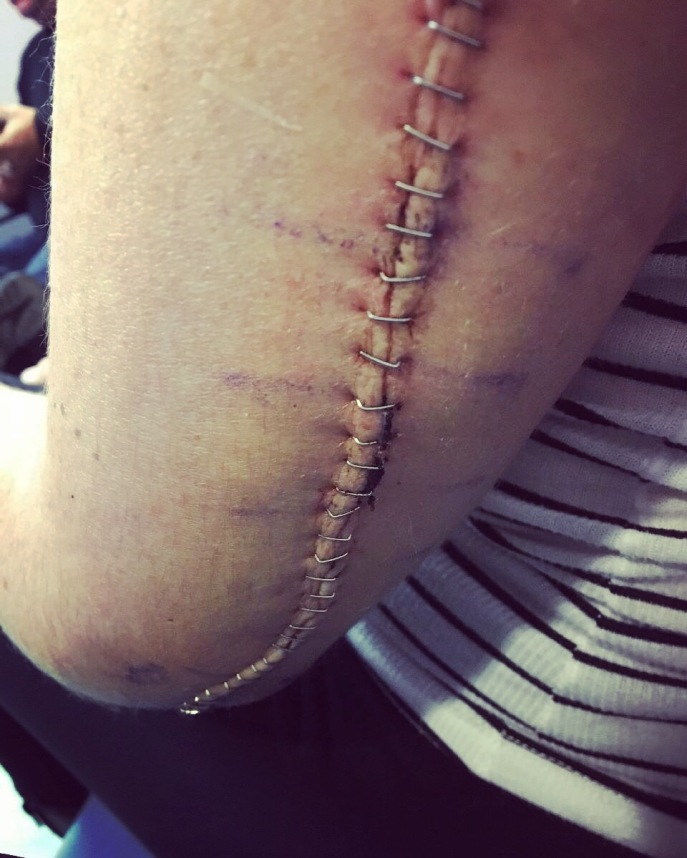Hey hi hello, welcome back to my fitness blog. I’ve been neglecting this outlet – not because I’ve been dead – but because I’ve been uninspired. Why? Well…
September 25th, 2016 my life was flipped upside down. Most followers remember I was training for my first powerlifting meet. Between cutting weight, shoulder injuries, and overall stress, my meet prep was everything but sunshine and rainbows. In fact, despite all of the encouragement from the powerlifting community, despite all of the “you’ll do great” speeches, my meet ended in the most horrible way possible (and I’m not being a drama queen when I say that).
I didn’t bomb out on all of my attempts. I didn’t get bumped up a weight class. But I did break my damn arm. On the platform. During my third squat attempt. In front of everybody.
I will save you the details (you can ask any of the spectators – they all heard the snap). I don’t remember feeling any pain, just some good ol’ mortification. To this day, I am still embarrassed it happened and what’s even more embarrassing is the way I’m handling this whole recovery: tears, meltdowns, feelings of hopelessness.
Let me preface this by saying that I’ve never been a particularly positive person. And let me follow up on that by saying that I strongly believe that being “negative” isn’t necessarily a bad thing. In fact, I’m a firm supporter of all personality types. What would the world look like if we were all hunky-dory? Sometimes, a pessimist adds perspective. Expecting the worst allows me to have the element of preparedness when things go awry and even sets my standards low so I surprise myself when things work out. My mind reacts to situations differently. This isn’t a bad thing, it’s just my way of thinking and processing.
So after the surgery (yes, surgery), after the dozens of X-rays, I find the recovery process so much more difficult now that I have set foot back in a gym than it was when I initially broke the arm. I went from training six days a week, to three. Celebrating my own PRs, to being a professional set-watcher… and I am hating every single moment of it. I am probably Exhibit A of how NOT to react after a bad meet, but nevertheless, I am “dealing.”
I am probably Exhibit A of how NOT to react after a bad meet, but nevertheless, I am “dealing.”
So how do you “deal”? I’m not sure if I can provide a tried-and-true, one size fits all approach. Truth is, I’m still trying to figure out my own working-through process now that the weights are gone. What I can say is that we all handle adversity in our own way. And so long as that way isn’t criminal or endangering, I believe it’s totally okay to honour your process and work at your own pace.
This post probably wasn’t what you wanted to hear from me, nor was it necessarily eye-opening. It is, however, authentic and from experience. My goal in starting this blog was to remain transparent with my journey, and I do genuinely believe I’ve captured that transparency in writing this post. No one really knows for sure the right way of working through adversity. You can agonize over the same event for months, or dust yourself off the next day. Neither of these processes are better or worse than the other. They are just… different.
Have an injury or bad meet story? What were some of your gut feelings and reactions? Let me know in the comments, I’d love to hear them!

